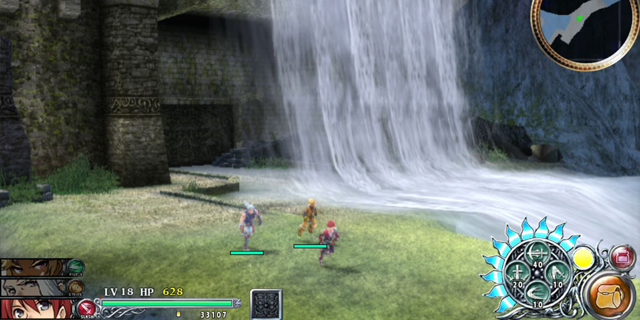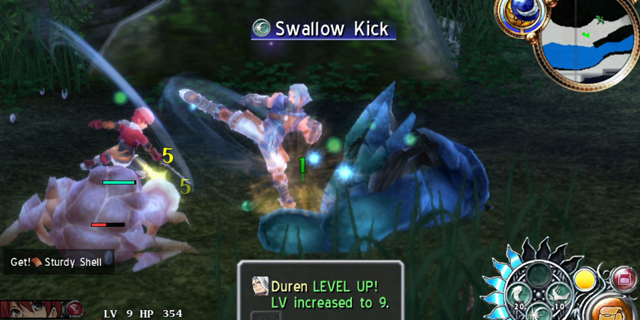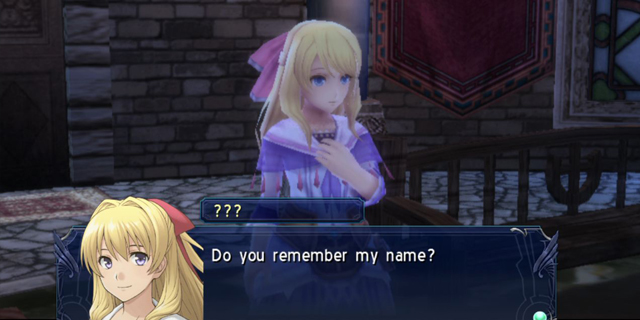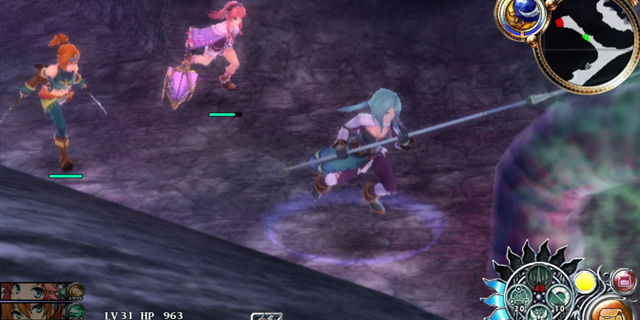
The theme of Falcom and XSEED’s latest, Ys: Memories of Celceta, is exploration. Series hero Adol Christin has always been portrayed as an adventurer, but this time around, the focus turns away from combat and puzzles and puts most of its eggs in a basket of discovery. It is an interesting take on the Ys formula, but due to some technical issues and a few underwhelming design choices, the Vita debut of the series isn’t as exciting as it should be.
Let’s get this out of the way first: Celceta is an effort to capitalize on the success of Monster Hunter and the genre of sorts it spawned. Monster Hunter was a huge success on the PSP, and since the series has moved on to other hardware, other similar games came to fill the niche. In the past few years we’ve seen Gods Eater, Ragnarok Odyssey and Soul Sacrifice. Celceta is still Ys, but bears a striking resemblance to this style of game.

Most of your time in Celceta is spent filling in the map. The plot reason is that Adol has been to the area before, but has lost his memory, and is still the only person brave enough to rough out the dangers of the forest. It is a stark difference from Ys Origin, for example: rather than confined areas such as secret-laden dungeons or ominous towers, the game is divided into screens that are mostly just open fields. If you’re in a dungeon, the open areas have ceilings. You run around and fight monsters and gather materials, but if you’re lucky, you might find a chest as well.
When it comes to fighting said monsters, Celceta feels like Ys again. Combat is fast and fluid, albeit sloppy and directionless. It feels good to hammer away at the attack button until the basic combo ends and you can top it off with a flashy skill. You get a lot of skills, but most of them don’t feel very different from one another until you get ones with more hits. You can dodge and guard, and doing either at the last second nets you bonus damage. Switching characters also changes your attack properties, and enemies have rudimentary weaknesses and resistances to go along.
Celceta has difficulty settings, and the fluid combat goes a long way to keep things less hardcore than the competition. However, the difficulty does uncharacteristically spike whenever you encounter certain non-boss monsters that kill you if you don’t defend properly. They can hit stun you to death before you even know what’s happening. Then you get to boss fights, huge fantastic encounters with silly pattern recognition puzzles, and suddenly Ys feels like Ys again.

Once you traverse the wide-open fields and kill the monsters, you end up in a town so the plot can advance. You generally unlock the same story beats as the previous town, and once you solve the problem, you encounter another genre trope: quest boards. Each town presents a handful of “Gather X” and “Kill Y” missions, and once you finish them, new ones don’t pop up. It feels understated, and only present to fill in around what Falcom was trying to achieve.
Even with all the Monster Hunter clones out there, I probably would have enjoyed Celceta more if it had more of a concise sense of direction. The fully-3D visuals do little for the series and, in addition to muddling the style, hurt the frame rate even when you’re simply running through a town. The music is still familiar synth cheese, but seems to lack the same energy of past titles.
Combat effects are less flashy, and even though you can play as multiple characters throughout the game, nothing ever really changes or feels significantly different. The game does make decent use of the Vita’s touch screen: certain abilities use it, and the menus are simple and make use of large buttons for easy finger navigation. Reading, speed, and standard navigation benefit as a result.

Much of Ys: Memories of Celceta feels soulless and manufactured. It’s a far cry from the goofy, anime maverick Zelda ripoff style of the past; while still shamelessly derivative, at least those games dared to have a personality. This feels like yet another Vita game trying to appeal to the PSP’s Monster Hunter fanbase, and unfortunately for Ys, there aren’t enough titles on the platform for this approach to feel anything but stale. If it had more of a distinct style, more to do or even just a smooth frame rate, it would have stood out. As it stands, it just isn’t enough.
Pros: Slick combat, interesting new direction
Cons: Technical problems, identity clashes, balance issues



















